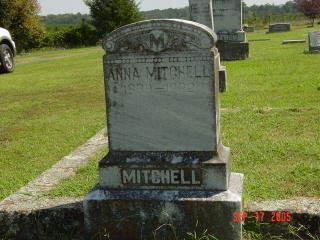CONFEDERATE WOMEN OF ARKANSAS
CONFEDERATE WOMEN OF ARKANSAS IN THE CIVIL WAR 1861 - '65 MEMORIAL REMINISCENCES - Published by The United Confederate Veterans of Arkansas November 1907 Copyright 1907 by J. Kellogg, Secretary Memorial Committee, U.C.V. This book is 221 pages and contains at least 55 personal remembrances of Arkansas Women who lived through the Civil War. I found this book in the personal effects of my grandmother. One entry was written by her brother in law's grandmother.
Wednesday, August 04, 2004
HUSBAND KILLED AT SHILOH
By Mrs. Anna Mitchell, of Havana
My husband and oldest brother joined the Tenth Arkansas Regiment near Quitman. C. R. Merrick was colonel and Witt (afterward colonel) and W.W. Martin of Conway were captains. The regiment camped near home two or three weeks and we felt so proud of them. We made our men red shirts, trimmed with black and with white thread worked in "Quitman Rifles." We covered their canteens the same way. I remembered covering one for Bob Bertrand of Little Rock.
PROMISED TO "WHIP THE YANKEES."
Our boys promised us that they would whip the Yankees right away and then come home and we would all have a fine time. We believed every word they said, and, loath as we were to give them up, we spoke our farewells bravely and waved in joy our little flags. We waited many a long day for their return!
WOMEN PLOWING
My father had a large family, and the only one able to work, my oldest brother, had joined the army. We had a hard time to keep body and soul together. The women plowed the field and planted and cultivated the corn. Some women had to walk five miles to a mill to get meal for their sack of corn, and frequently there was no meal, nothing but bran, which they cooked and ate.
It was a common sight on the road to the mill to see two women on either side of a yearling calf that was harnessed to the front or rear part of a wagon, with a small load of corn or wheat. Each woman held a line from the head of the yearling, and the work of the day was to induce the yearling to walk forward and not backward.
SPINNING AND WEAVING
Mother and myself never knew one day what we would have to eat or wear the next. Spinning and weaving constantly was one part of our work. When our homes began to look comfortable, the federal raiders would come and take horses, food and clothing. We had then to begin all things over again.
My husband was killed at the battle of Shiloh, and the whole work of rearing the family fell upon me. Many times I grieved that I could not give them something good to eat, but it was only when they began to grow into manhood that their life became what I wished it to be. My three sons are now living, one a doctor, another a lawyer and another a merchant.
EXTRAVAGANCE AND PRIDE OF THE YOUNG
The present generation thinks that the old folks are too economical in their ways. If they had gone through the war times they would not be so extravagant. Nor would they be working to place themselves above one another. In the old times all were on an equality. Those that never had to work had to learn very soon or do without much clothing. Then they were glad to get their poor neighbors to show them how to spin thread and weave cloth to make their dresses, and when they were made those fine ladies were just as proud of them as if they had the finest silk.
PROUD OF BEING A SOUTHERN GIRL
In war times we were proud of being Southern girls. We gloried in the name and felt greater pride in it than in glittering wealth or fame. Hurrah for the homespun dresses that our Southern women wore! These goods were really nice, so that you could not always tell them from store goods, though we did not havve ribbons and fringes to hide defects. My children, when they see this poor writing, may feel ashamed of their old mother's inability as a writer, but it will be the first time in their lives that they did not love what the old lady did.






